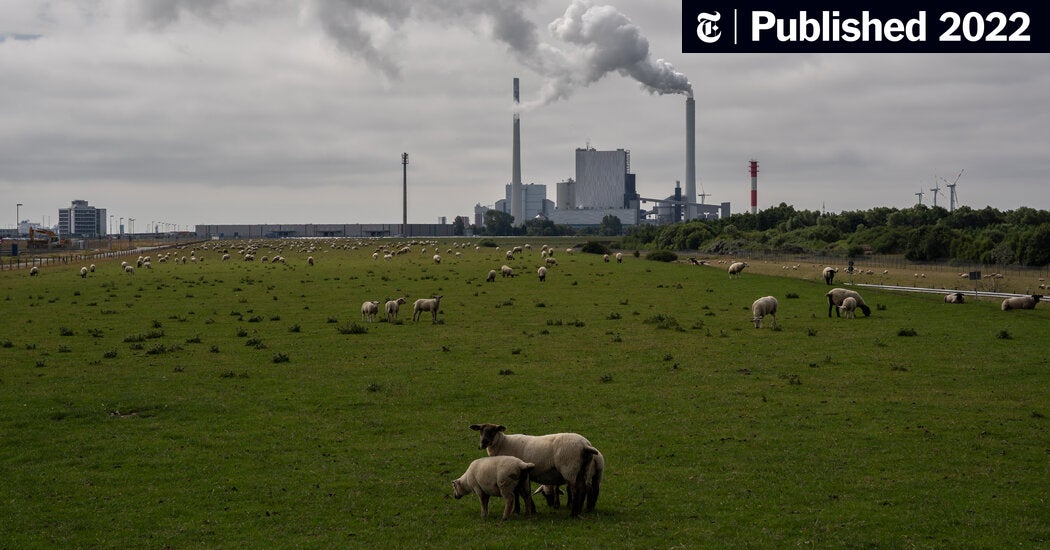Germany's Klingbeil Rejects Renewed Russian Gas Imports

Table of Contents
Klingbeil's Statement and Reasoning
Klingbeil's unequivocal rejection of renewed Russian gas imports sends a powerful message. While a precise quote requires verification from official sources, the essence of his statement can be summarized as a firm refusal to compromise Germany's energy security and its values by re-engaging with a supplier that has demonstrated its unreliability and used energy as a geopolitical weapon.
His reasoning rests on several pillars:
- Geopolitical Concerns: Continued reliance on Russian gas leaves Germany vulnerable to political pressure and manipulation. Russia's actions in Ukraine have demonstrated the risks of such dependence.
- Support for Ukraine: Renewing gas imports would indirectly bolster the Russian economy, undermining international sanctions and efforts to support Ukraine.
- Reliability of Russian Supply: Russia's past actions demonstrate its willingness to weaponize energy supplies, creating instability and uncertainty for German consumers and businesses.
Klingbeil's key arguments can be summarized as:
- Moral Implications: Supporting the Russian economy through gas purchases is morally unacceptable given Russia's actions in Ukraine.
- Security Risks: Continued dependence on Russian energy jeopardizes Germany's energy security and leaves it vulnerable to blackmail.
- European Solidarity: Diversifying energy sources and reducing reliance on Russia is crucial for European solidarity and energy independence.
The Broader Political Context in Germany
The issue of Russian gas imports has ignited a heated debate within Germany's political landscape. While Klingbeil's stance reflects a significant portion of the SPD's view, other parties hold varying positions. Some within the German government, particularly those prioritizing economic stability in the short term, might have favored a more cautious approach. Public opinion is complex, with concerns about energy costs and security intertwined. The upcoming elections will undoubtedly see this debate play a central role.
Different perspectives on the issue include:
- Pro-Russian Gas Import Arguments: Some might argue for maintaining a degree of reliance on Russian gas to avoid immediate economic disruption, citing the difficulty of finding quick alternatives.
- Counterarguments: These emphasize the long-term benefits of energy diversification, enhanced energy security, and the need to stand firmly against Russia's aggression.
- Economic Consequences: Completely abandoning Russian gas carries significant economic risks, requiring careful planning and investment in alternative sources.
Germany's Energy Transition and Alternatives to Russian Gas
Germany's Energiewende, its ambitious energy transition program, is central to its efforts to replace Russian gas. This involves significant investment in:
- Renewable Energy: Expanding solar, wind, and other renewable energy sources is a cornerstone of the plan.
- LNG Terminals: The construction of new liquefied natural gas (LNG) terminals is crucial for diversifying gas supplies.
The feasibility of this transition faces challenges:
- Speed of Implementation: The rapid shift away from Russian gas requires significant investments and infrastructure development.
- Intermittency of Renewables: The variable nature of renewable energy requires solutions for reliable energy supply, such as energy storage and grid modernization.
Progress made includes:
- Increased Renewable Energy Capacity: Germany has made progress in increasing its renewable energy capacity, but further expansion is needed.
- LNG Infrastructure Development: The development of new LNG terminals is underway, but their full operational capacity will take time.
- Investment in Alternative Energy Infrastructure: Significant investments are being made in smart grids, energy storage, and other infrastructure to support the energy transition.
International Implications and European Solidarity
Klingbeil's stance aligns with the broader EU effort to reduce dependence on Russian energy. This solidarity is critical:
- EU Sanctions: The EU's sanctions against Russia have targeted energy imports, but their effectiveness hinges on member states' commitment.
- Collaborative Efforts: Cooperation among EU members is vital for sharing resources, diversifying supply chains, and developing joint energy infrastructure.
The impact on international relations:
- Impact on German-Russian Relations: Germany's rejection of Russian gas will likely further strain its relationship with Russia.
- Strengthened European Ties: The shared effort to reduce reliance on Russian gas strengthens cooperation and solidarity among EU member states.
Conclusion: Germany's unwavering stance against renewed Russian gas imports, as championed by Lars Klingbeil, signifies a crucial step toward energy independence and European unity. While the transition away from Russian energy presents challenges, Germany's steadfast commitment to its energy transition and diversification strategies offers a pathway toward a more secure and sustainable energy future. Staying informed about Klingbeil's future statements and Germany's energy policy is vital for understanding the evolving geopolitical landscape and the nation's journey toward escaping Russian gas dependence. Continue to follow this story for further updates on Germany's rejection of renewed Russian gas imports and its broader implications.

Featured Posts
-
 Tributes Pour In Following The Passing Of Priscilla Pointer At Age 100
May 01, 2025
Tributes Pour In Following The Passing Of Priscilla Pointer At Age 100
May 01, 2025 -
 Grote Stroomstoring In Breda Oorzaak En Gevolgen Van De Uitval
May 01, 2025
Grote Stroomstoring In Breda Oorzaak En Gevolgen Van De Uitval
May 01, 2025 -
 Ryan Coogler Et Le Reboot De X Files Rumeurs Et Analyses
May 01, 2025
Ryan Coogler Et Le Reboot De X Files Rumeurs Et Analyses
May 01, 2025 -
 Boks Ile Stres Yoenetimi Eskisehir Tip Fakueltesi Oegrencilerinin Yolu
May 01, 2025
Boks Ile Stres Yoenetimi Eskisehir Tip Fakueltesi Oegrencilerinin Yolu
May 01, 2025 -
 Robinson Nuclear Plant Passes Safety Inspection License Renewal Could Extend To 2050
May 01, 2025
Robinson Nuclear Plant Passes Safety Inspection License Renewal Could Extend To 2050
May 01, 2025
